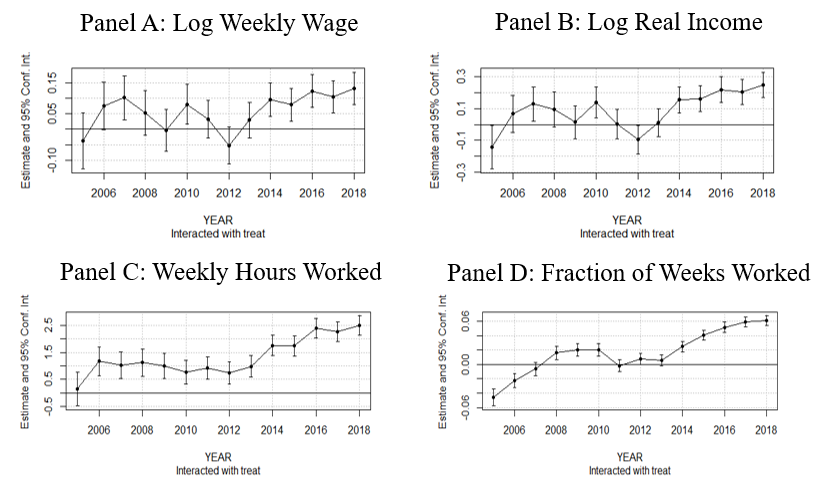DACA Effect on Labor Market Outcomes: Evidence from U.S. Micro-Level Data
Abstract
Deferred Action for Childhood Arrivals (DACA) stands as one of the most significant and extensive immigration policies in recent U.S. history. Its primary aim was to grant work authorization to qualifying undocumented immigrants. However, it quickly generated controversy due to the potential to disrupt the labor market by introducing an oversupply of labor, which could negatively impact the employment prospects of the wider population. We employ a difference-in-differences research design to examine the causal impact of DACA on the labor market outcomes of U.S. residents living near the DACA eligibility criteria thresholds. Our findings reveal that DACA has a positive effect on the labor market outcomes of eligible immigrants. This is most evident in the form of increased annual income and weekly wages, both in the overall U.S. sample and in state-specific subsets.
We then use an instrumental variable approach to assess the policy’s impact on the labor market outcomes of those who were ineligible for DACA. Our analysis demonstrates that DACA has adverse consequences on the labor market outcomes of the DACA-ineligible population, which includes both ineligible immigrants and native-born citizens. In many cases, the negative impact on the DACA-ineligible group is greater in absolute magnitude than the positive effects observed in DACA-eligible immigrants. In summary, our results highlight how relaxing employment restrictions through an immigration policy like DACA can significantly influence labor market outcomes, affecting not only the intended beneficiaries but also leading to unintended consequences for the broader population.
